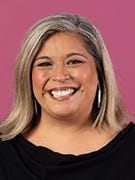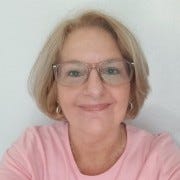Salesforce Uses Partner Ecosystem as a Powerful Platform for Promoting DE&ISalesforce Uses Partner Ecosystem as a Powerful Platform for Promoting DE&I
The company’s first Partner Ecosystem Equality Report documents their progress to date.

Diversity, equity and inclusion (DE&I) is a long-standing value at Salesforce, and they believe that businesses can be a powerful platform for change. That value doesn’t stop at their doorstep.
Beyond the tens of thousands of people Salesforce employs directly, the company has an ecosystem of more than 11,000 partners around the globe and over 200,000 credentialed experts who help their joint customers get the most out of Salesforce. And the Salesforce ecosystem is projected to grow to almost six times the size of Salesforce by 2026, creating 9.3 million jobs.
Salesforce sees ensuring that a diverse talent pool is prepared to fill these roles and start new equitable businesses in the ecosystem is an important way to grow their impact exponentially.

Salesforce’s Lori Castillo Martinez
“We’re committed to our equality goals and working across our ecosystem with employees, partners and customers to drive progress and increase business value,” said Lori Castillo Martinez, Salesforce’s chief equality officer. Martinez is a member of Channel Futures’ 2022 DE&I 101, which recognizes individuals driving DE&I in the information and communications technology channel.
The company’s first Partner Ecosystem Equality Report showcases how far they’ve come in ushering in diverse, equitable and inclusive partner businesses in the United States. It also establishes a transparent benchmark for tracking progress toward equality in Salesforce’s Partner Ecosystem.
An Inclusive Workforce
A key strategy for promoting ecosystem equality is enabling those historically left out of the tech industry to skill up and connect with potential employers at partner companies. Salesforce has measured their progress on this front by tracking:
Hiring through the Salesforce Talent Alliance, an initiative that connects partners with skilled candidates trained on Salesforce’s free online learning platform Trailhead, with an emphasis on inclusion. In all, Salesforce Talent Alliance has helped 22,000 individuals from all walks of life start their careers in the Salesforce ecosystem. Partners who pledged to work with Talent Alliance candidates reported that 27% of the hires in 2022 came from ethnically and/or racially underrepresented groups in technology, 38% of whom were women.
Attendance at career fairs to look for open positions within the ecosystem. In the past year, Salesforce saw strong participation in career fairs; of these individuals, 40% were Black, 13% were LatinX, and 21% were new immigrants and refugees.
Completion of Salesforce Fundamentals, a free three-week course that prepares job-seekers for their first roles in the ecosystem. In the past year, 55% of participants were women and 44% identified as underrepresented minorities (URMs).
Participation in the free live learning experiences that Salesforce sponsors on Clicked, which enable people to practice their skills, build portfolios and explore career options in the ecosystem. Sixty-seven percent of those seeking jobs at partner companies through Clicked were women and nearly half were URMs.
Going forward, Salesforce will continue to drive a pipeline of diverse new talent prepared to fill in-demand roles within the ecosystem.
Promoting Equality and Community Impact
Salesforce supports partners who want to put their commitment to equality into practice. This past year, they launched the Partner Collective Impact, an initiative in which businesses pledge to measure progress and support each other in promoting equality and positive community impact. So far, members have committed …
… 15,000+ volunteer hours and nearly $1.4 million in charitable donations through the initiative. In addition, more than 1,500 partners have taken Salesforce’s 1-1-1 pledge, dedicating 1% of their equity, products and employees’ time to social impact.
New Opportunities for Diverse Entrepreneurs
Another way Salesforce is striving to advance equality is through the recognition and development of diverse-owned and/or founded partners. Their U.S. diverse-owned partners have added more than 1,500 net-new certified employees (a 25% increase) and over 5,200 net-new certifications (a 28.6% increase) in 2022.
Recently, Salesforce launched an Impact Accelerator. This program is designed to help underrepresented partners – defined as business owners and founders from underrepresented communities within the Salesforce ecosystem – grow their Salesforce businesses, including identifying new opportunities and building long-lasting relationships.

CRMified’s Joshua Hoskins
Joshua Hoskins, founder of CRMified and one of the 14 inaugural cohort members, considers the program to be invaluable. “The Salesforce Impact Accelerator is one of a kind,” he said. “Experiencing a space to identify new areas for growth, gain valuable knowledge and collaborate with experts and peers has played an essential role in planning the future of CRMified and is critical to fostering an equitable ecosystem for entrepreneurs behind us.”
Salesforce also supports three diverse partner community groups by working directly with them to achieve their goals and objectives – Black-Owned Salesforce Entrepreneurs (BOSE), Salesforce Women Founders Group and LatinX Founders Group – all of which help diverse-owned businesses thrive.
To help customers find apps and experts that align with their values, partners can now share on their AppExchange listing if they are a diverse-owned business, an accessible solution and a participant in Salesforce’s Pledge 1%.
Committed to Ecosystem Equality
Salesforce is committed to creating a diverse, equitable and inclusive ecosystem that reflects their communities. To that end, they have established impactful goals for the future of their partner ecosystem in the United States:
Attract 7,100+ new URG job seekers (71% of total U.S. registrants) into Fundamentals through partnerships with organizations focused on URM and women talent by 2024.
Increase diverse-owned partner representation by 50% by 2026 and support the growth of diverse-owned partners at double the rate of Salesforce through 2026.
15% of Salesforce professional services spend to be with diverse partners via subcontracting by 2025.
Double the number of Salesforce partners who participate in our 1% pledge by 2026.
To achieve these goals, Salesforce is investing in an array of programs and tools that advance equity in the ecosystem. The Salesforce Ecosystem Equality Partner Advisory Board, comprised of passionate leaders from partner companies, is drawing on their expertise to help shape the company’s strategy. The Salesforce Talent Alliance, the Fundamentals course and Clicked learning experiences, and Partner Collective Impact are only just the beginning.
Want to contact the author directly about this story? Have ideas for a follow-up article? Email Buffy Naylor or connect with her on LinkedIn. |
About the Author
You May Also Like


